Forging your own path in uncharted territory
“What do you want to be when you grow up?”
That’s a question often posed by teachers to inspire students to think about their future goals. For most, it would take years to figure out the answer, but Dr Pauline Tay had her heart set on a unique career right from the start – a biotech consultant.
“My classmates didn’t know what that was because that job did not exist back then. My dad even asked if I was going to work in a zoo!” Pauline says with a laugh. “Most of my friends thought about becoming doctors, engineers or lawyers, but no, I was sure of what I wanted to be.”
Today, Pauline is the Director at the National Health Innovation Centre Singapore (NHIC) which strives to create impact in the field of health technology innovation and establish Singapore as a leading hub for health innovation and enterprise development in Asia.
With its robust track record in supporting the translation of innovative healthcare research and turning ideas into commercial enterprises and products through its funding programmes, NHIC is now into the next phase to go beyond funding to offer a holistic suite of programmes that will drive greater collaborations with NHIC’s strong network of public and private partners.
Read on to find out how she charted her own career path, her leadership philosophy and the exciting projects she is leading at NHIC.
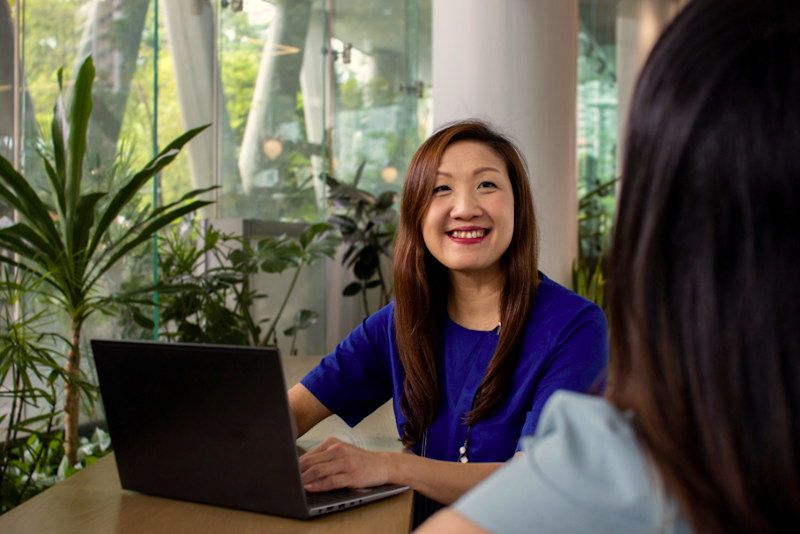
Many would prioritise stability and predictability when it comes to their career choices, opting for the tried and true over the unknown. But for Pauline, the greatest rewards often come from taking risks and daring to be different. It was also an opportunity to create something truly unique and rewarding.
Pauline spent 25 years of her career in science and technology in the public sector which has seen her through myriad roles from research, business development, programme implementation, and innovation and enterprise. She is no stranger to charting her own path, driven by a passion to innovate.
“When I was a child, I was often sick and had to go to the doctors frequently. I was thankful that even in those days, we had wonderful clinical professionals that cared well for us. In addition, I always marvelled at the medications which made me feel better. That got me thinking about how medicines and therapeutics were made – someone, somewhere was thinking about how to help the sick everywhere – from discovery, manufacturing, and eventually reaching the clinic and patients. I wanted to be part of the value chain and bring an idea to fruition – that’s how I got the inkling of becoming a biotech consultant,” she explains.
While pursuing a Bachelor of Science degree at the National University of Singapore, she selected modules that would align with her goals: “I chose modules such as Microbiology, Biochemistry and Physiology which were modules offered by the Medicine faculty, although I wasn’t studying for a medical degree.”
After graduation, she tried looking for roles at consultancy firms but Singapore’s biomedical sciences initiative was still in its infancy stage at the time, and there were no biotechnology consultancy jobs.
“If that job did not exist, I would create it.”
Her first role in the public sector was in training and consultancy at the Singapore Productivity and Standards Board (PSB), which is now Enterprise Singapore. Thereafter, Pauline spent 12 years of her early career at the former National Science and Technology Board, witnessing its transformation into the Agency for Science, Technology and Research (A*STAR) in 2002.
A trailblazer ahead of her time, she was involved in the development of the biomedical science sector, establishing research institutes and A*STAR’s scholarship programmes. She assumed positions ranging from research management to talent development and commercialisation of research spin-off companies.
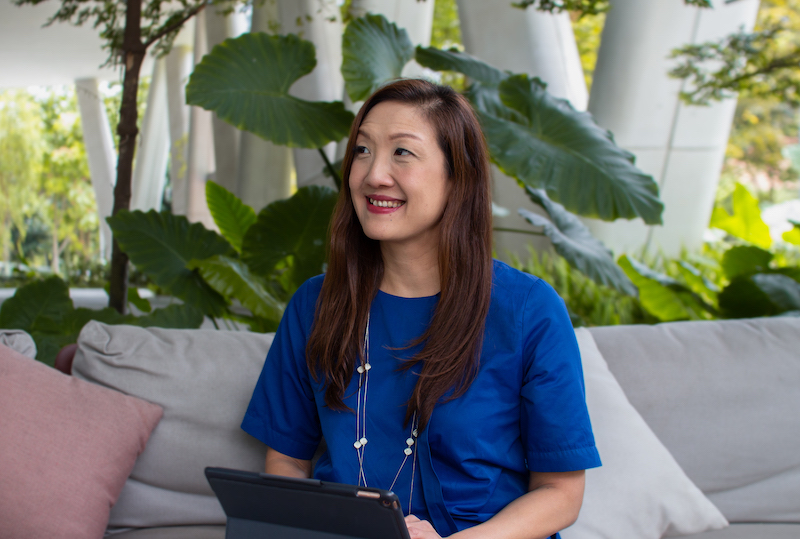
She went on to pursue postgraduate studies “so that I could understand how scientists think, and be a better biotech consultant to help them commercialise their inventions one day,” she says with a laugh. “I strongly believe that if we want to be a leader in a particular area, we must first have a good fundamental technical background,” she explains.
Pauline holds a PhD in Stem Cell Biology and B.Sc. in Microbiology and Biochemistry from the National University of Singapore, with a postgraduate certificate in Advanced Biotechnology from the Osaka School of Medicine, Japan.
“When I went to Japan, I not only learnt how to grow stem cells for the first time, but was also introduced to the field of venture capital and technology incubators. It was the first time I was exposed to these concepts, and I thought ‘Cool! We should set these up in Singapore too!’”
The insights gained overseas inspired her to kick-start new initiatives and projects when she returned.
“Singapore had just launched its biomedical sciences initiative in 2000 and I met many mentors who had great foresight and gave me new projects to take on. I have to say that this unique career did not just come like that – it was really because of opportunities that came at the right place and right time. I was very lucky,” she says.
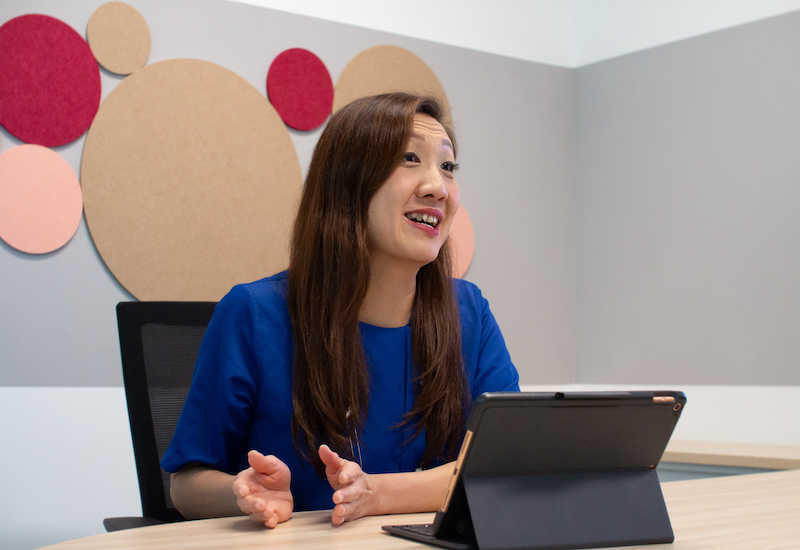
Later, she led the Innovation and Enterprise Directorate at the National Research Foundation (NRF), formulating and implementing strategies and programmes to catalyse innovation and enterprise development through technology.
Signature programmes she spearheaded at NRF included the Singapore Week of Innovation and TeCHnology (SWITCH), Central Gap Fund, National Lean Launchpad, Innovation & Enterprise Cluster Fund, Industry-Alignment Fund Industry Collaboration Projects, Early-Stage Corporate Venture Funds, SGInnovate and Xora Innovation — just to name a few.
She shares that many of these initiatives “were very new to Singapore at the time”, and her team “had to do many things from scratch”, such as setting up the Central Gap Fund, introducing the concept of deep tech accelerators and venture builders, as well as founding SWITCH, which has since become the largest innovation and technology event in this region.
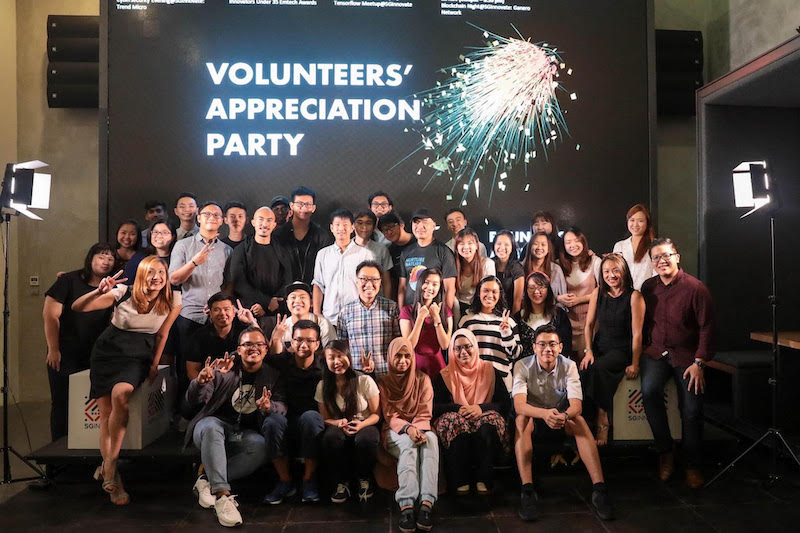 Pauline (second row, left) at an appreciation party for SWITCH volunteers who were part of a mentorship programme where youths gained exposure to stakeholders in the tech ecosystem through event management
Pauline (second row, left) at an appreciation party for SWITCH volunteers who were part of a mentorship programme where youths gained exposure to stakeholders in the tech ecosystem through event management
When asked what spurred her to spearhead so many of the signature milestones in Singapore’s technology ecosystem, Pauline emphasises that a multi-pronged approach was needed to bring an innovative idea to market: “There’s only so much we can do if we just help individual companies or innovators. We have to plant seeds, but at the same time, we also need to grow the garden or forest around them. In this way, different parts of the value chain can serve each other organically, and the whole ecosystem becomes self-sustainable.”
Don’t be afraid to work yourself out of your role
With her wealth of experience and insights gained from working with leaders in the innovation, technology and enterprise space, Pauline believes that one of the first things a leader should do is succession planning.
“The best way to be a leader is to groom someone else to be able to do what we can do and even better. If we work ourselves out of a job, it means that we have done our job very well and we can move on to doing other things,” she smiles.
When it comes to managing people, Pauline firmly believes in scoping a role around a talent, instead of force-fitting someone into a role: “We should make sure that the job is designed around the talent, because people should enjoy what they do. Find out what the person is naturally good at, and scope the role around the capabilities of the talent, not the other way around.”
Nevertheless, she acknowledges that it is a delicate balancing act, because we all have our own strengths and preferences, and there are always challenges and responsibilities to every job that not everyone will find enjoyable or meaningful. For instance, administrative tasks that some may find mundane, or public speaking which some might shy away from.
“We should aspire to develop T-shape talent – deep in subject matter expertise most of the time (vertical knowledge) versus broad and adaptable management skills when required (horizontal expertise),” she adds.
She suggests that perhaps “70% of the tasks can be what staff find fulfilling, and 30% are opportunities to grow and develop their horizontal skills, so that colleagues can also cover one another when necessary”.
During her time at A*STAR and the NRF, Pauline also mentored young, enterprising individuals who were looking to step out of their comfort zones and came to her for advice.
“A few times, students or young individuals I had helped come up to me years later to tell me that, for instance, they have become successful due to a scholarship programme they applied for, or raised Series Bs in their start-ups, or are now very successful in their field. It seemed like a small gesture back then, just taking care of them and giving them a chance to develop their innovative ideas. I was surprised that they remember me! It’s like planting a seed in the past and seeing that they have now blossomed so well – the sense of satisfaction and fulfilment it brings is ineffable,” beams Pauline.
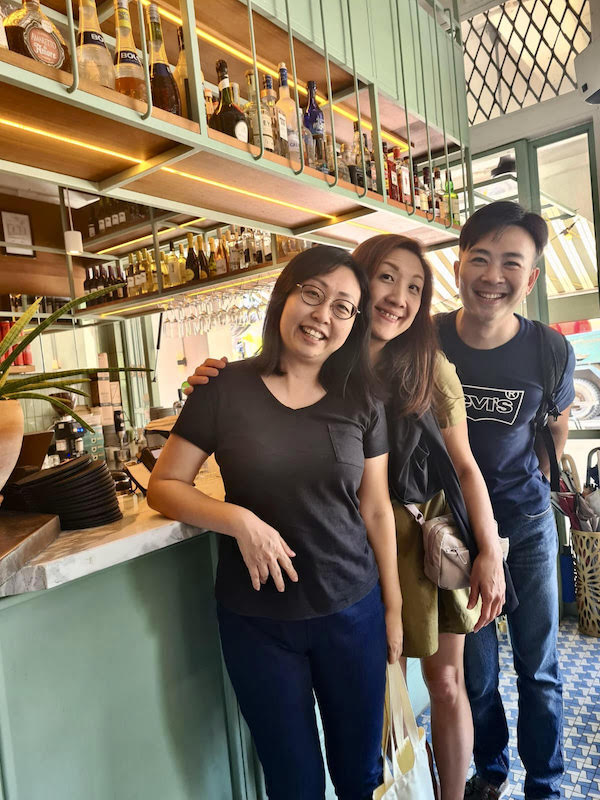 (L-R) Dr Liu Meihui, Faculty of Science Assistant Dean (Undergrad Studies & Student Life) at NUS; Dr Pauline Tay; Dr Marvin Lee, Director, Smart Nation & Digital Economy, NRF. Pauline had previously inspired Dr Lee to embark on the A*STAR National Science Scholarship when he was a young student, which gave him the opportunity to complete a PhD overseas. She was in the same A*STAR Graduate Scholarship programme together with Dr Liu and the pair have been growing and supporting each other since their PhD days.
(L-R) Dr Liu Meihui, Faculty of Science Assistant Dean (Undergrad Studies & Student Life) at NUS; Dr Pauline Tay; Dr Marvin Lee, Director, Smart Nation & Digital Economy, NRF. Pauline had previously inspired Dr Lee to embark on the A*STAR National Science Scholarship when he was a young student, which gave him the opportunity to complete a PhD overseas. She was in the same A*STAR Graduate Scholarship programme together with Dr Liu and the pair have been growing and supporting each other since their PhD days.
When asked what her thoughts about her career journey were thus far, she said: “It is very fulfilling, and I am glad I chose it. If I could do it all over again, I would choose the same path.”
Powering the next generation of healthcare innovation
The path has now led her to NHIC and, in less than a year, Pauline and her team have already launched a number of key initiatives.
Last October, NHIC announced a new Clinical Innovation and Adoption Initiative which includes an Innovation to Adopt (I2Adopt) grant, aimed at bringing promising healthtech innovations to be clinically adopted across our local public healthcare clusters, for the purpose of furthering the commercialisation efforts of industry partners.
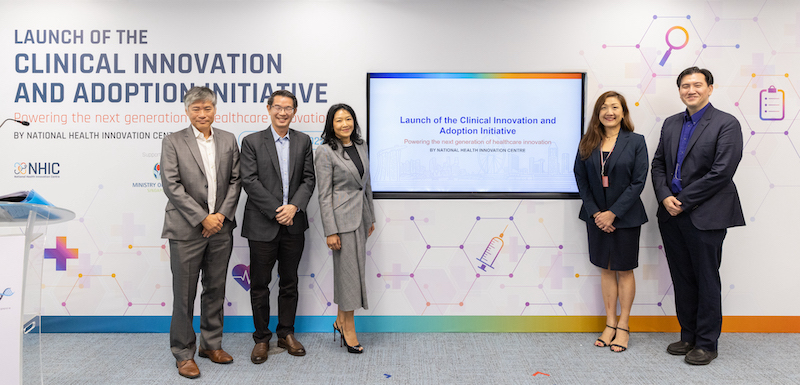
At the same time, they also embarked on targeted public-private partnerships under the Clinical Advancement and Development for Research Entrepreneurship and Enterprise (CADRE2) scheme to co-create or co-develop med-tech and biotech start-ups and solutions from home-grown technologies from an early stage.
In January, NHIC also partnered SGInnovate in its Helix Immersion Programme to nurture individuals who not only have a strong understanding of science but also equipped with the capabilities to understand clinical needs and workflow, and commercialise businesses. The programme hopes to increase the biotech talent base in Singapore as the sector is expected to grow by eight per cent yearly. By 2025, it aims to place and train 100 fellows in biotech start-ups and companies by 2025. NHIC will help create a critical layer of C-level biotech/medtech founders and Senior Corporate Innovation Leads for Singapore.
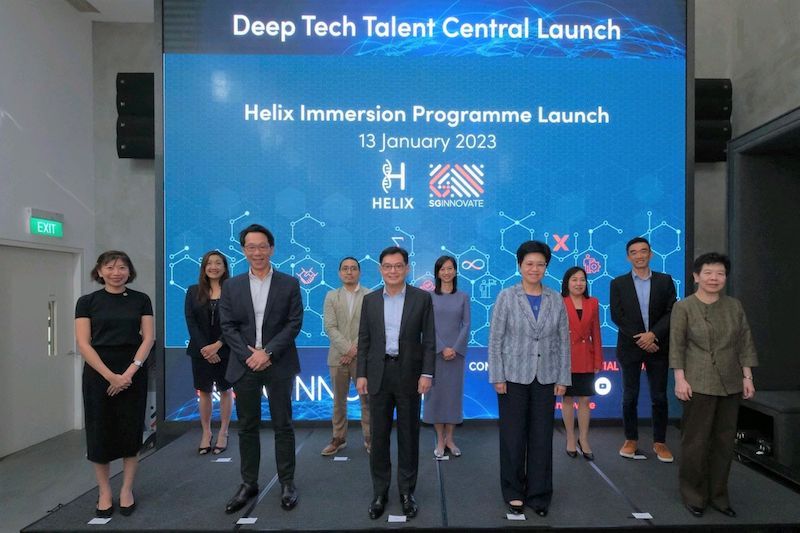
These are exciting times as NHIC continues to work with strategic partners in the ecosystem to tackle challenges and create opportunities for growth in the clinical space.
When asked what she’s looking forward to doing next, she says: “We are very proud to have launched NHIC’s next phase which focuses on bringing clinical innovations to adoption at our public healthcare clusters. This puts Singapore on the global map as an international leader in this region to bring medical innovations towards commercialisation.” This effort requires more than just funding, with NHIC going beyond its usual grant agency role, working with clusters and project teams to smoothen out processes and accelerating the pathway of clinical adoption to commercialisation.
“We are excited to work with our ecosystem partners to implement enablers that will power the next generation of product ideation, technology development, commercialisation and the adoption of cost-effective healthtech innovations here in Singapore,” Pauline adds.
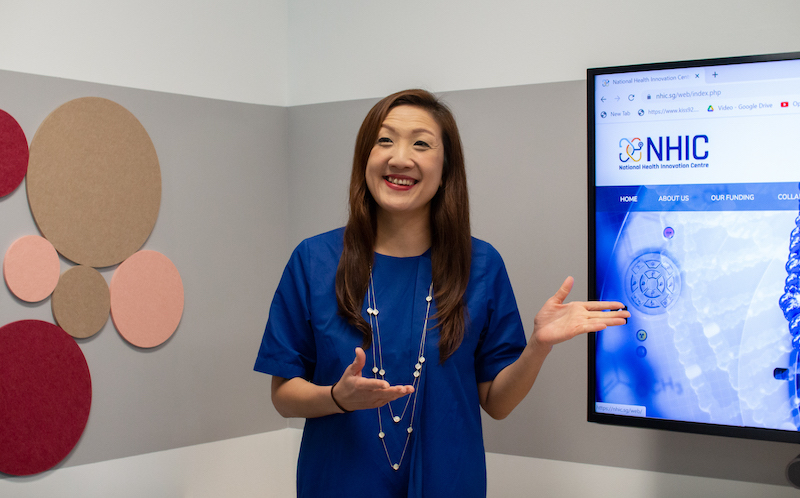
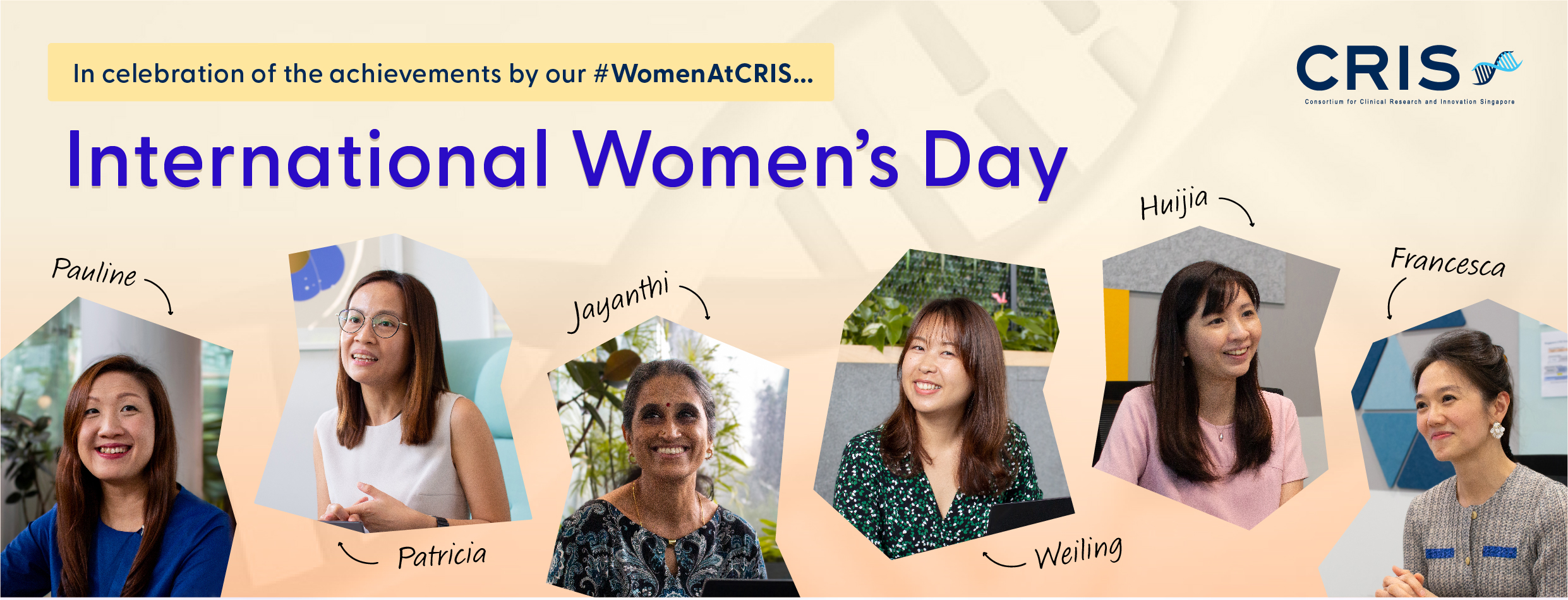
Click here to read more articles in this series.

